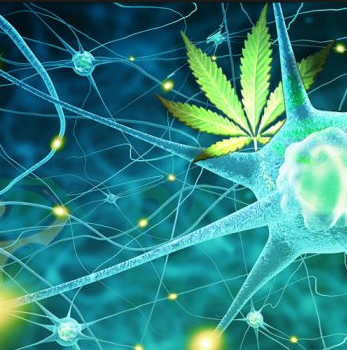MJ and Dreams: What Happens After You Quit
If you’ve ever taken a break from using MJ after a long period of regular consumption, you may have noticed that your dreams become more frequent, vivid, and realistic. This isn’t just your imagination—it’s a well-documented phenomenon. Why does MJ affect dreams, and what is the “rebound effect” all about?
Why People Use MJ for Sleep
It’s no secret that MJ is widely used as a sleep aid. Many people turn to it to relax, whether they have trouble falling asleep or simply want a deeper rest. Smoking pure indica strains or their hybrids is known to have a particularly strong effect on sleep quality.
Long-term MJ users often notice that their dreams become shorter or even disappear altogether. This is linked to the deep, restful sleep that cannabinoids can induce.
To understand why this happens, it helps to look at the different stages of sleep and when dreams actually occur. This makes it easier to see how MJ affects the sleep cycle.
The Sleep Cycle
The sleep cycle is divided into two main phases: slow-wave (non-REM) sleep and rapid eye movement (REM) sleep. These phases alternate throughout the night to create an optimal sequence for rest and recovery.
- Stage 1 – Falling Asleep: The transition from wakefulness, brain waves slow down, and muscles relax.
- Stage 2 – Light Sleep: Brain waves slow further, the body disconnects from the environment, and body temperature drops.
- Stage 3 – Deep Sleep: Complete relaxation, lower blood pressure, slower breathing, lower body temperature, and the blood is filled with mediators and hormones.
Sometimes, deep sleep is split into two stages, but the three-stage classification is now more common.
The second part of the cycle is REM sleep. During REM, brain waves resemble those of a waking person, heart rate and breathing speed up and become irregular, and the eyes move rapidly. Muscles may twitch, but the body is generally paralyzed to prevent involuntary movements.
MJ Users Dream Less Often
In 1972, researcher Rudolf Terry Pivik conducted a study on the effects of THC and its synthetic analogs on sleep cycles. The experiment involved recording brain waves with EEG throughout the night. The control group consisted of people who had never used MJ.
The results showed that those who consumed THC or its analogs experienced longer periods of deep sleep and shorter REM phases compared to the control group. This explained why MJ users often report fewer dreams.
These findings were confirmed in follow-up studies in 1975 and 2008. Both studies also documented the “rebound effect” that occurs after stopping MJ use. So, what exactly is this phenomenon?
The Rebound Effect
When someone who has used MJ for a long time suddenly stops, they may experience a “rebound” effect. This is characterized by a surge in dreaming—dreams become more frequent, vivid, and intense. Some people even experience lucid dreams, where they are aware they are dreaming and can control the dream’s events.
This effect is due to a sudden increase in REM sleep, as the body compensates for the suppression of this phase during MJ use.
Insomnia and PTSD
Although MJ reduces REM sleep—the phase responsible for processing emotions and memories—this can actually help people who suffer from nightmares, especially those with PTSD. Dreams become less frequent and less intense, reducing the stress and anxiety associated with traumatic dreams and allowing for deeper, more restorative sleep.
Even people with regular insomnia may find that MJ helps them achieve healthy, restful sleep, giving them the energy they need for the day ahead.
How Does Reduced REM Sleep Affect Us?
There are many theories about the importance of REM sleep. However, research has shown that people generally tolerate a lack of REM sleep quite well, with little to no impact on behavior—unlike the first phase of sleep, which is essential for physical recovery and normal functioning.
That said, the long-term effects of reduced REM sleep are still unclear. A 2014 study by a group of InTech scientists found a link between REM sleep and cognitive processes like memory and skill development. This suggests that reducing REM sleep could play a significant role in brain development, especially in young people.



